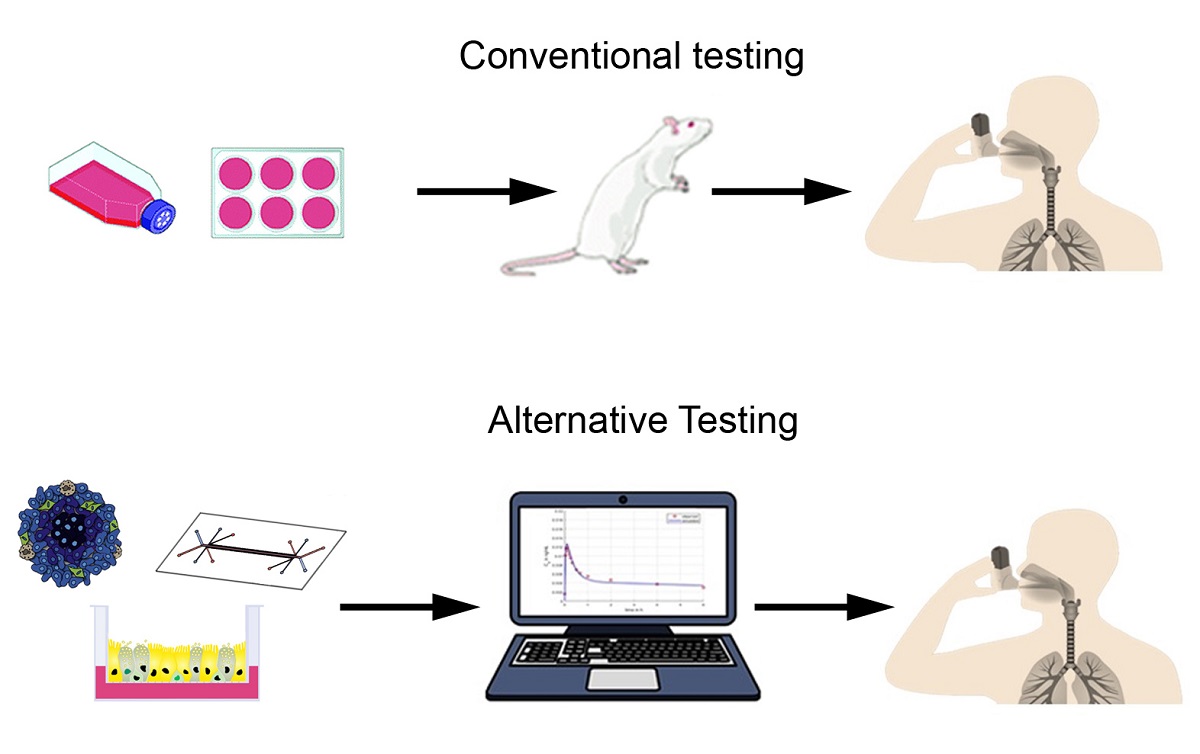Testing in animals is mandatory in drug testing and the gold standard for evaluation of toxicity. This situation is expected to change in the future because the 3Rs principle, which stands for replacement, reduction and refinement of the use of animals in science, is reinforced by many countries. On the other hand, technologies for alternatives to animals experiments have increased. The necessity to develop and use of alternatives is influenced by the complexity of the research topic and also by the fact, to which extent the currently used animal models can mimic human physiology and/or exposure. Rodent lung morphology and physiology differs markedly for that of humans and inhalation exposure of the animals are challenging. In vitro and in silico methods can assess important aspects of the in vivo action, namely particle deposition, dissolution, action at and permeation across the respiratory barrier and pharmacokinetics. Out of the numerous homemade in vitro and in silico models some are available commercially or open access. This review discusses limitations of animal models and exposure systems and proposes a panel of in vitro and in silico techniques that, in the future, may replace animal experimentation in inhalation testing.

